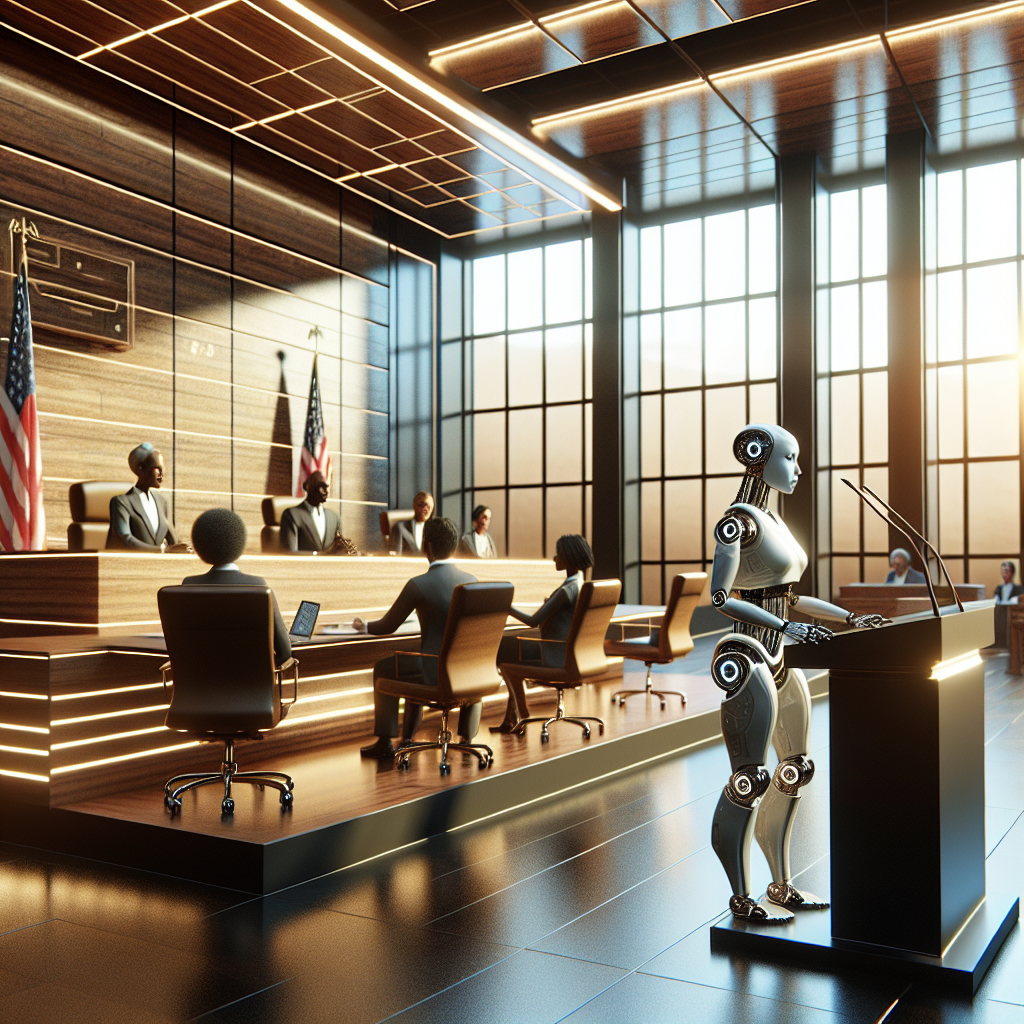In Motion to Dismiss: Character AI’s First Amendment Defense
In an ongoing legal battle, the chatbot platform Character AI has taken a bold stance by invoking the First Amendment in its motion to dismiss a lawsuit. This move has sparked considerable interest and debate surrounding the legal implications of artificial intelligence (AI) and free speech rights. As technology continues to evolve at a rapid pace, understanding the intersection of AI, legal frameworks, and constitutional protections becomes crucial.
The Background of the Case
Character AI is a platform that enables users to create and interact with AI-driven chatbots, which can mimic human conversation. The lawsuit against Character AI stems from allegations that the platform has facilitated the creation of inappropriate or harmful content through its chatbot technology. The plaintiffs argue that the company should be held responsible for the actions and outputs of these chatbots, which can sometimes produce offensive or controversial responses.
As a response to the lawsuit, Character AI filed a motion to dismiss, asserting that the company is protected by the First Amendment. The argument hinges on the idea that the chatbots are simply tools for expression, and any content generated is a form of free speech. This brings forth a complex discussion regarding the responsibility of technology companies in moderating content generated by their platforms.
The First Amendment and AI
The First Amendment of the United States Constitution guarantees the right to free speech, which has traditionally been understood to apply to individuals and their expressions. However, the rise of AI-generated content poses unique challenges to this interpretation. When a chatbot generates a response, is that response the expression of the user, the developer, or the AI itself?
Character AI’s defense rests on the premise that since chatbots are designed to generate content based on user prompts, the responsibility for any offensive output lies with the users, not the platform. This aligns with the broader legal protections afforded to platforms under Section 230 of the Communications Decency Act, which shields online services from liability for user-generated content.
The Implications of the Defense
If Character AI’s motion to dismiss is successful, it could set a significant precedent for the treatment of AI and chatbot technologies under U.S. law. It would affirm the notion that AI-generated content is a form of speech protected by the First Amendment, potentially leading to fewer restrictions on how chatbot platforms operate.
This defense could also encourage innovation within the AI sector. If companies like Character AI can confidently assert their First Amendment protections, they may be less inclined to implement strict content moderation policies that could stifle creativity and free expression.
On the other hand, successful defense could raise concerns about the risks associated with unmoderated AI interactions. Critics argue that without accountability, platforms might become breeding grounds for harmful or misleading content, resulting in significant social repercussions.
The Role of Content Moderation
As AI technologies become more integrated into daily life, the question of content moderation remains paramount. While the First Amendment provides robust protections, it does not absolve companies from the responsibility of ensuring their platforms are not used to propagate hate speech, misinformation, or other harmful content.
Character AI has stated that it takes content moderation seriously and has implemented systems to identify and mitigate inappropriate chatbot responses. Nonetheless, the effectiveness of these measures continues to be a focal point of scrutiny.
Balancing Free Speech with Accountability
The challenge lies in striking a balance between fostering free expression and ensuring accountability for harmful content. If character AI’s motion is successful, it might embolden other tech platforms to adopt similar defenses, potentially leading to a landscape where accountability becomes increasingly blurred.
However, if the court rejects the First Amendment defense, it could result in stricter regulatory measures for AI platforms, which may have chilling effects on innovation and free expression. Companies may face increased pressure to implement exhaustive content moderation practices, limiting the potential of AI technologies to thrive.
Looking to the Future
As the legal proceedings unfold, industry stakeholders will be closely watching the outcome of Character AI’s motion to dismiss. The case could redefine the landscape of AI technology and its legal protections, influencing how companies approach the development and deployment of chatbot platforms.
The implications of this case extend beyond legal jargon; they touch on ethical considerations about the role of technology in society. As AI becomes more prevalent, discussions about the responsibilities of developers, users, and platforms must evolve.
The Importance of Public Discourse
Engaging in informed public discourse about these issues is vital. As users, developers, and policymakers, we must understand the ramifications of our choices in the realm of AI technologies. By advocating for responsible practices, promoting transparency, and encouraging ethical development, stakeholders can help shape the future of AI in a way that respects both free expression and societal responsibility.
In conclusion, the legal battle surrounding Character AI and its invocation of the First Amendment raises critical questions about the intersection of technology, free speech, and accountability. As the outcome of this case unfolds, it will serve as a touchstone for future discussions and regulations related to AI and its role in modern communication. In a world increasingly influenced by artificial intelligence, the legal frameworks we establish will set the course for how these technologies coexist with fundamental rights and responsibilities.



